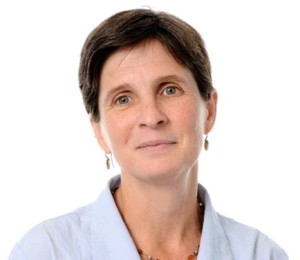 As the summer holidays draw to a close, thousands of people up and down the country will have found out whether the hours and months spent meticulously researching the best places to visit and to stay ultimately came to fruition.
As the summer holidays draw to a close, thousands of people up and down the country will have found out whether the hours and months spent meticulously researching the best places to visit and to stay ultimately came to fruition.
There are lots of decisions to make in life. Holidays are a perfect example of how much time people are willing to commit to an activity that they hope will improve their happiness and wellbeing. We notice similar patterns with the time we invest in buying new furniture or a new car too. But it’s often been asked why people don’t tend to put the same effort into making decisions about their healthcare.
When we make decisions about important things in life, we have an implicit understanding of a number of things. We know that what makes a good holiday or car is personal: does it need to meet the needs of a family, an individual, or a group of friends? Is it a short break or the trip of a lifetime?
We also know that the amount of effort we want to put into our holiday is variable: do we want to plan every aspect of our trip or do we want to hand the logistics over to someone else? Or somewhere in between? We all want different things from holidays and there is a huge industry to meet this need—so why isn’t this the case for healthcare?
Perhaps the first thing we need to consider in answering this is whether healthcare is sufficiently personalised to make us feel that it’s worthwhile getting engaged. Then, once we are engaged, do we have the support and information required to help us decide whether we want to be an “independent traveller” or join an organised tour through a travel agent?
The personalisation agenda is surely one of the biggest challenges facing healthcare, and I think there are chiefly two reasons that it presents such an obstacle. Firstly, if we’re going to personalise healthcare, there needs to be wider recognition that choice is far more fundamental than simply where people can go for their treatment. It is about recognising the lack of certainty that is associated with many healthcare interventions and that, as a consequence, choosing the right course of treatment (including the choice to do nothing) will depend on the trade-offs individuals are prepared to make.
Secondly, we need to realise that the NHS’s role in “looking after” people who are unwell is pretty limited. People are looking after their own health every moment of their life—for better or for worse. If the NHS can equip us to do that better through a more person centred approach to care, rather than taking on the responsibility itself, then we could achieve significant health gains.
It isn’t just the NHS that needs to change. As a society, we need to recognise that health isn’t produced by the NHS; it is a product of our own lives and interactions with the services that are available to help us. The British are often characterised as a deferent nation and doctors remain one of the most trusted professions. Do we defer too much to “doctor knows best?” I suspect it is more complex than this.
Our attitudes towards healthcare are shaped by our early interactions: generally simple and straightforward childhood illnesses and accidents, where there are simple fixes. As we get older, our healthcare needs are inevitably more complex, but have we developed the understanding of our options and choices that is needed to engage productively with the decisions before us?
Until levels of health literacy increase and we recognise our need to take an active role in our care, we will fail to capitalise on the greatest asset the NHS has: the people using its services.
Jo Bibby is director of strategy at the Health Foundation.
Competing interests: I have read and understood the BMJ policy on declaration of interests and declare the following interests: None.
